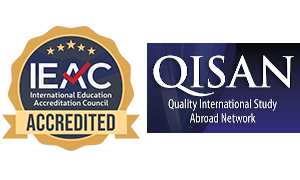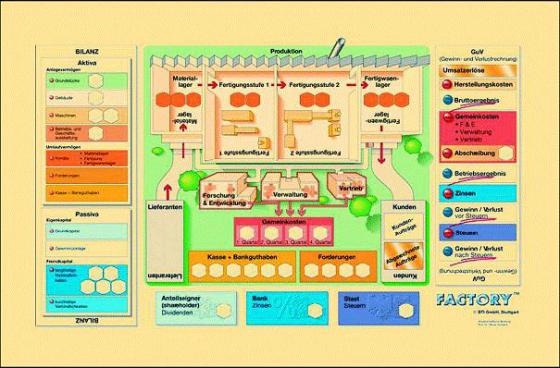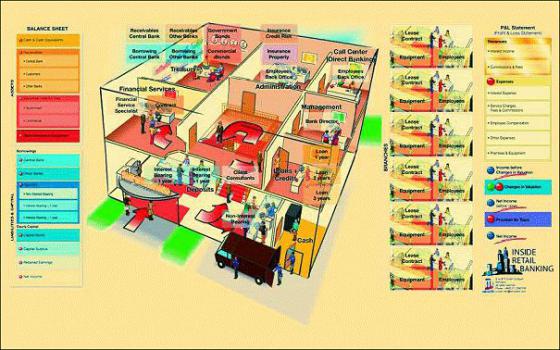Professional Leadership Program
PLP Courses
The Management Courses of the PLP program are comprised of 6 educational categories (14 business modules). Most of the 14 business modules consists of 3 seminar days at one of the ZEBS locations.
ZEBS also offers lectures given by business leaders from all over the world. These interactive presentations expose the student body to real-world business experience and open exchange of methodologies and information.
Exams take place in form of case studies and of presentations.
Educational Category | Leadership
Business Modules
Given that CSR is currently omnipresent in the media, the course puts special emphasis on the reduction of complexity and provides an easy-to-follow access to the flood of information, guidelines and stakeholder requirements.
As such, the course offers ZEBS students compact entry into CSR terminology, topics, trends, risks, typical areas of action and strategic opportunities. Beyond pure theory, simple tools (quick checks) leave room for the individual status quo analysis and clarification of critical questions: Where does my company currently stand with its CSR engagement? How do other companies leverage CSR for competitive advantages, future-proof differentiation and/or risk mitigation? How can my company build upon (existing) CSR activities to create and strategically increase value-add? Which kind of expertise is key? How can we pragmatically implement CSR without jeopardizing scarce resources?
The course uses various kinds of didactic learning methods and requires the students to critically participate and re-question their own business ethics.
Objectives:
The participants…
- are familiar with the current CSR discussion and have a solid know-how of CSR basics, particularly about key frameworks and business guidelines,
- have a clear understanding of the business drivers and options,
- can apply basic “quick checks” to easily assess their company’s status quo,
- can quickly elaborate first recommendations and pragmatic steps for their companies, design own projects and – if needed – recommend necessary structures,
- are familiar with “good & bad practices” and have learned from “the best”,
- know their next steps and training options.
Methods:
Impulse presentations, case work (incl. tools), individual and group work, critical discussions, role plays, ex-ante reading, guest lecture
Leadership is an essential component of business success, involving a complex interaction between the leader, followers and situation. It describes a process in which a person influences, motivates and enables others to contribute toward the effectiveness and success of organizations of which they are members.
At this course an exciting leadership and teambuilding event at a sports ground takes place and it provides the students with a basic understanding of the leadership challenges of business.
The students split up into several teams and the local sports centre team explain the rules. The team leaders get briefed in the theoretical elements of the team-leading and team-building processes which have to be realized.
Before the match begins each team leader “recruits” its team, allocates certain roles and positions to their members and sets the strategy. After this the game begins.
Team self reflection and feedback processes under ´real-life` difficult circumstances such as time and performance pressure take place. Strengths and weaknesses get identified which lead to adaptations in the roles, positions and strategies of the teams.
This gives a fresh perspective on the game and the adjustment of the teams’ strategies lead to an optimized way of confronting the opponent.
Before rounding off the evening with delicious burgers and drinks, the students and the staff reflects on the match according to their initial goals and strategies. The strategy amendments and their implementation get discussed as well as the “leadership-lessons” learned.
This course is particularly targeted at students of business administration, general management, MBA and/or corporate representatives with an interest in a pragmatic introduction to the realm of project & change management.
Program style:
This is a highly practical and participative workshop. While some theory is being introduced, the focus is on pragmatic application – on how to manage projects/change more effectively. To ensure relevance and support the transfer of learning, each attendee is required to bring some current project and change challenges which are used as the basis of group activities and exercises throughout the program. The program is structured around a variety of coaching and action learning experiences.
Objectives:
The participants…
- are familiar with the basic project & change management concepts & techniques,
- can apply basic approaches and tools to daily PM/CM challenges,
- can quickly elaborate first recommendations and pragmatic steps for their companies, design own projects and – if needed – recommend necessary structures,
- are familiar with “good & bad practices” and have learned from others’ experience,
- know their next steps and training options.
Project Management (Day 1-2):
Along a standard PM certification structure (PMI), the course is meant to provide a high-level overview of project management dimensions. As such it does not emphasize nor replace the theoretical depth of project management certifications, but intends to quickly raise the level of knowhow and day-to-day applicability of PM techniques. The course strictly follows the 80:20 rule with a clear focus on how to instantly improve standard project management skills in a corporate environment. Topics include:
- Introduction: Critical success factors, typical pitfalls & reasons for failure
- Project phases & project management areas, hereof:
- Scope management & change request handling
- Project planning & time management
- Cost & budget management, KPI-chains
- Stakeholder management & project communication
- Risk & issue management
- Overview: Program management
- For those who need more: Typical project management certifications (e.g. PMI)
- Case study & team contest
Change Management (Day 3):
The course is structured as a high-level introduction to the broad topic of change management. The students will be presented a series of change management models, discuss their variations and understand how to apply them to daily corporate and project challenges. The course lays the foundation for a more in-depth change management workshop around team, organizational und culture change. In this brief introduction the following topics will be covered:
- Change management introduction & overview: What is organizational change?
- High-level systems theory: What to change?!
- Different models of change
- The psychology of change
- Typical change approach: Create sense of urgency, vision, team/ champions, handle resistance/ conflicts, etc.
- Optional: Depending on the time available 1-2 topics from: Levels of change engagement interventions & key change pre-requisites
- Individual: Understand individual impact & personality types (Bolton & Bolton, MBTI, etc.)
- Team: Diagnosing maturity and developing teams (forming – storming – norming – performing)
- Organizations: Diagnosing & changing corporate culture (OCAI model Kameron & Quinn)
- Leadership: Understanding leadership impact & necessary management skills (management skills assessment instrument/ MSAI model Kameron & Quinn)
- Case study & team contest (design a change approach)
Methods:
The course uses various kinds of didactic learning methods – impulse presentations, case work (incl. tools), individual and group work, critical discussions, role plays, ex-ante reading – and requires the students to critically participate and re-question their own management skills.
This course will blend a rigorous scholarly treatment of the topic of negotiations and conflict management with a diverse array of business-focused negotiations exercises. The consistent focus of our efforts will be on the role of the exe-cutive as a negotiator, a manager and resolver of conflict, and a leader of people. The Course will provide students with a theoretical, conceptual and operational grasp of the body of knowledge and skills set underpinning the negotiations and conflict management process.
We will briefly examine each of the following five elements:
- Negotiations/Conflict Management Style
- Diagnosis of the Negotiations/Conflict Scenario
- The Two Primary Negotiations Decision Making Processes
- Communication and Influence and Persuasion and
- Strategy and the Wise Exercise of Power
Students will take away from the Course a basic understanding of how mastery of these five elements can make one a more competent, thoughtful decision maker and a bolder, more confident leader of people. Among the matters students will come to comprehend more fully are the following:
- The guides to effective behaviour to be found by accurately assessing your negotiation style and juxtaposing it with the style of the other party
- The importance of ascertaining the primary characteristics of the conflict scenario: the interdependence of the parties, the synergy and conflict between their respective goals, the negotiations games they are likely to play
- The difference between distributive bargaining and integrative, problem solving bargaining
- Why effective communication is the precursor to being a persuasive negotiator and
- The importance of planning, adaptability, compassion and face saving to effective conflict management
Students will be expected to take an active role in the learning process by participating in negotiations exercises, case studies and class discussions.
Educational Category | Operations Management
Business Modules
Am Ende der MBA Lehrveranstaltung sind die IMP-MBA Teilnehmer in der Lage, Prozessmanagementkonzepte in die Praxis umzusetzen
Zielsetzung:
- Prozessmanagement als Instrument der Beschreibung, Analyse und Optimierung der Leistungserstellung erkennen und anwenden
- im strategischen Umfeld des Unternehmens und
- in der operativen Wertschöpfung
- Ansätze der Prozessverbesserung kennen und anwenden
- Prozesstransparenz im Rahmen der Reorganisation und Steuerung herstellen
- Organisationen und Prozesse auf den Markt und den Kunden ausrichten
- Verschiedene Methoden des Prozessmanagements kennen und verstehen
- Leistungsfähigkeit und Stabilität der Organisation sicherstellen
- Leistungserstellung messen, bewerten und optimieren
- Konkrete Maßnahmen zur Verbesserung von Prozessen in Projekten umsetzen können
- Chancen und Risiken in der Reorganisation erkennen und Maßnahmen zur Reorganisation festlegen und umsetzen
- Prozessmanagement in den Informationssystemen umsetzen und anwenden
Während des MBA Kurses findet auch die Prozesssimulation KreditSim statt. Ziel des „Projektes Marktservice“ ist es, Optimierungsbedarfe zu identifizieren und das volle Potenzial des Marktservices einer Bank auszunutzen. Anhand der Prozesssimumaltion KreditSim wird die Vorgehensweise und Methodik in einem konkreten Lean Six Sigma-Projekt eingeübt. Damit vertiefen die Studenten ihre Einblicke in die behandelten Optimierungskonzepte.
Employees, who think entrepreneurially and who understand the financial relations within the company, are the basis for a long-term success of the company.
The simulation game is a seminar which simulates the situation of a company, showing the possibilities of the participants to support their company.
In small groups, the participants play the management team of a manufacturing company. This enterprise has been successful during the last years and has realised profits. But the economic and competitive context is changing and profitability is now threatened. The management team must take steps to lead the company to success again. The participants will manage the company over a simulated 3 year period.
This seminar begins with a discussion about challenges which the participants are confronted with in their company, starting from extern obligations and offered chances up to the present targets of the company, e.g. stock market. After a brief introduction to the logic of finance economy in terms of business management, the actual simulation begins.
The seminar demonstrates the relation between cause and effect, which influence the balance sheet and the P&L account. Thus, the participants learn how the productivity and profitability of their company can be influenced by their own action. The participants optimise their company for example by reducing the stocks as well as the length of a run. These improvements are also simulated and in the ongoing calculation of liquidity the participants observe how the profitability and productivity of their company grow.
Learning objectives:
- Understand the importance of fixed and variable assets to business success
- Understand the interplay of production supply and distribution
- Understand the impact of overhead costs such as administration, marketing, research and development
- Understand the impact of stock reduction, just-in-time and other measures of rationalisation
- Understand the indicators of profitability and performance
- Understand the thinking and expectations of shareholders
Educational Category | Building International Strategic Advantage
Business Modules
The Strategic Management and Management Consulting course is a state-of-the-art workshop that gives managers and consultants the knowledge to develop an effective strategy for their business or clients’ business. Pressure for short term financial results and shareholders value does not release executives from the responsibility for the long term success. If they want to reach excellence in their business they have to be capable of articulating a strategy that differentiates from the competition.
This course will hone your intuition and equip you with tools to turn strategic ideas into actions. You will be provided with state-of-the-art concepts that have been validated in the field as well as the latest developments in strategic thinking and you will learn through case studies a scheme of how to use them in several business situations. You will sharpen your competitive skills and change the way you will strategically manage your business.
Excellent presentation skills is a “must” for successful managers and consultants. Thus some of the presentations during this workshop will be video recorded and presenters will be provided with feedback within the class.
Educational Category | Finance, Banking & Law
Business Modules
Today most practicing managers - even of small and middle sized companies - are involved in international commercial and financial transactions. Therefore they need to have a general understanding of the legal aspects of carrying out transnational transactions by private-sector parties.
The objectives of this module are the following:
- to get familiar with legal vocabulary and principles of Business Law (Civil Law, Commercial Law, Labour Law, Law of Business Associations)
- to provide the students with a basic understanding of the legal aspects of international business
- to show how an international manager has to take into account foreign legislation
- to apply legal concepts for solving business problems.
A bank consists of several departments which depend on each other. Only those banks are successful in which all departments cooperate and follow one line of work. You will manage a bank and find out the critical factors of success. Experience the results of different decisions you have made during the simulation. With this simulation you can experience the real challenges of today's business world.
Course Content:
This seminar is an intensive simulation based on a board game. In the course the participants manage a bank over a 3-year period. Divided into competing groups, they face the task of acquiring profitable business, opening new branches and producing a healthy profit.
They make decisions about:
- which deposits to take in,
- which loans to accept concerning interest rate, duration and risk,
- how many people to hire
- how to refinance to secure liquidity
- the level of marketing expenses
and they experience the consequences of their own strategic and financial decisions.
The participants learn how the cash-flow works in the bank; how important the principles of liquidity and capital adequacy are and how treasury, marketing & sales, financial services and HR functions are interconnected.
In brief they experience how activities in one department of the bank effect other departments and by the end of the day the bottom line.
Financial concepts like P&L, Balance Sheet, Cash Flow and Performance Ratios are explained and connected to the everyday operation of the bank. All decisions are by the end of the simulated year reflected in financial numbers and are subject to improvement if necessary.
This course is providing an overview over Investment Management activities with a focus on Financial Markets, Security Valuation and Portfolio Management.
The program will include:
- The Economics of Financial Markets
- Financial Intermediaries
- Overview of Financial Markets
- Money Market
- Debt Market
- Equity Market
- Foreign Exchange Market
- Security Exchanges
- Asset Management
Financial Accounting
All public listed European Companies have to present their Financial Statements in accordance with the IAS/IFRS or, if they are not listed, in accordance with the national regulations. For the understanding and interpretation of Financial Statements it is important to be familiar with the basic terminology as well as the principles of Financial Accounting. Furthermore the evaluation of assets and liabilities should be understood. Finally it is important to derive measures from the Balance Sheet and from the Income Statement to have an idea on the financial and economic situation of a company.
The objectives of the module are:
- to get familiar with the vocabulary and principles Financial Accounting
- to provide the students with a basic understanding of the different Financial Statements
- to introduce the different evaluation-approaches
- to show how assets and liabilities have to be presented in a balance sheet
- to illustrate the two basic approaches of presenting an income statement
- to define and interpret important ratios from the Financial Statements
Managerial Accounting
The calculation of product costs and the fixing of sales prices are essential in an industrial company. Furthermore the definition of cost centers and the control of overhead costs are an essential responsibility of a manager. Therefore the objectives of this module is to give the participants a basic understanding of the important controlling tools:
- to get familiar with the vocabulary and principles of Management Accounting
- to provide the students with a basic understanding of the different steps of a product price calculation
- to show what decisions can be derived from the calculation data
- to introduce the basic idea and the calculation of the contribution margin
- to give a basic idea of a cost variance analysis
- to show how managers can plan and control the overhead costs of their department.
Educational Category | Marketing
Business Modules
Marketing is one of the major functions of the firm; marketing has even become a synonym for market oriented management. Whatever type of company and area of industry, marketing plays a decisive role for corporate success. Thus the objectives of the course are:
- to make students familiar with thinking and deciding from a market point of view
- to develop overall marketing objectives and strategies
- to provide students with knowledge on marketing instruments
- to give insight into marketing processes (information gathering, planning, control)
- to enable students to understands pre-requisites, implications, and effects of marketing decisions
Company examples and case studies play an important role to show the practical implications of marketing theory and support a knowledge transfer into the firm
Educational Category | Managing People & Cultures
Business Modules
Module objective
Students gain practical – and intellectual insights into cross-cultural relationship management, negotiation and knowledge-sharing from several perspectives.
Module concept
The module is a direct development of the module ‘Cross-cultural management in the global knowledge economy’. It focus on the acquisition of contextual intelligence as an important cross-cultural competence for international business operations. Contextual intelligence is the ability to (a) exercise knowledge, experience and intuition and (b) apply good judgement in order to secure and evolve common cognitive ground with foreign business partners. The key word with CI is diagnosis. Central to the success of the module will be interaction with students and contributions from them about their own experiences in international business.
Benefits to students:
- The course enables you to apply some of the learning points tomorrow!
- You learn enough about a small number of management cultures so that it can help you with others.
- You gain intuitive skills and cross-cultural communicative competence
- You develop the art of non-ethnocentric judgement without which there can be no CI.
It is increasingly recognised that firms' performance and success are closely related to the efficient transfer of knowledge (i.e. know-how, values and experience). In their international operations firms need to ensure that their knowledge-sharing behaviour takes account of factors such as differences in language and culture as well situational factors which can often impede but sometimes even accelerate knowledge transfer. Current research suggests that global knowledge transfer is a complex experiment with people, structures and processes and that no one firm can automatically serve as the benchmark for others.
The aim of this module is to introduce the latest thinking and research about cross-cultural management as a global knowledge-based activity in terms of both conceptual insights and management challenges. These issues will be presented with special reference to:
- transfer of management knowledge (know-how, values, experience)
- mergers and acquisitions
- organisational development
Tuition will be supported by business cases and histories with reference to US, German, Swiss, Danish and Japanese companies




